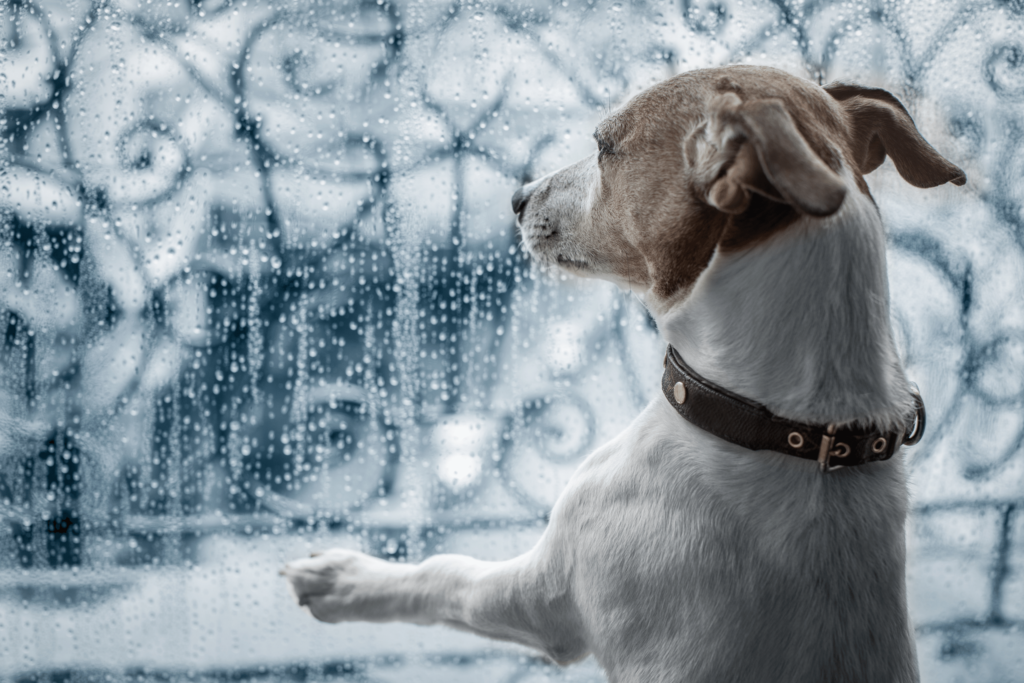Prone infections and ticks in pets during monsoons
The darling drizzles of rain that leaps this humble heart bring some not-so-desired elements. With monsoon comes a season of microbes giving way to so many infections. The rainy weather can be tough on us, and we humans are not the only ones surviving this scourge. A lot of health issues can be triggered in our pets too. The season is a beacon for water-borne diseases, the same contaminated water our little home babies may consume. Our pets are prone to contract viral flu, illnesses and infections in monsoon, ranging from digestive problems to ticks and fleas.
Cautions during Monsoon
1) Gastric issues
Due to ingestion of contaminated edibles or water, pets are likely to develop some gastric problems, especially some breeds who tend to possess a sensitive stomach. Untidy surroundings and moisture in the weather can further trigger these issues. Since activity and physical exercise are reduced during the season, there needs to be a solid cautiousness towards diet to keep these issues at bay. Provide them with clean water to keep that tummy from getting upset.
2) Infections
The moisture and humidity-induced in the environment during monsoon make it easy for microbes, especially bacteria and fungi, to make a home in your dog’s fur. This can lead to skin infections, and pets are particularly vulnerable to these during monsoons. Itchy skin, rashes and burns born out of Malassezia in dogs can be a nuisance, while cats are susceptible to respiratory infections. Cold, cough and pneumonia are also not uncommon. To avoid this, keep your pup’s bed pups away from the misty environment. Restrain from taking your pet out in heavy rain; when done, cover them with a raincoat. Use a towel to keep them dry as much as possible.
3) Ticks & Fleas
The month of monsoon is a breeding ground for ticks and fleas. The chances of parasites and bacteria making a haven in the rump area and under limbs are very high. Ticks can affect your dog’s immune system fatally, resulting in fatal tick-borne infections and reduced RBCs and platelet count. Ticks and fleas should be checked regularly and cleaned daily, followed by brushing. Nowadays, anti-tick and anti-flea sprays, shampoos and other products you can apply to your pet to keep them away from parasitic infestations.
4) Dwindling Temperature
The scorching summer heat suddenly swayed off at the onset of the monsoon. This sudden fall in temperature is when your pet may be more prone to cold and cough. Make sure always to keep that stuffy pal warm and dry. Walks in heavy rain should be avoided but if they have been exposed to rain, make sure to wipe them clean. Cleaning and keeping them dry and warm would help in protecting their coat from humidity.
5) Hygiene
Monsoon is a month of rampant cleaning. Otherwise, your space can be a shelter for bacteria and fungi. This should remarkably follow for pets. Keep their ears and paws clean and dry all the time. Nail clipping and dental check-ups are highly advised to dodge any risks.
Following these tips can come in handy for fighting infections in monsoon, but consult an online vet if things take a severe toll. Besides the infections and diseases, animals also tend to suffer crippling or mild anxieties during the season. Shower them with love, cuddles and hugs to calm them down. It is specifically true in cats who tend to reflect signs of detachment during the season. Check-in with online vets for dogs and cats for the same.

